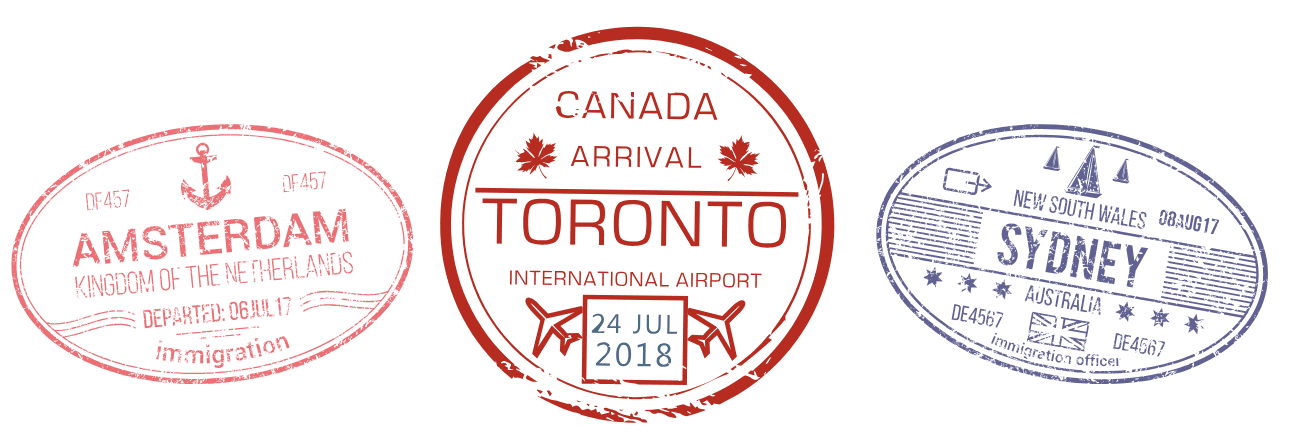Table of Contents
Apply for Study Visa

Canada, Australia, and Europe
Studying abroad is an aspiration for countless students seeking global exposure, top-quality education, and enhanced career prospects. Countries like Canada, Australia, and Europe are renowned for offering some of the world's most prestigious academic institutions, diverse cultural experiences, and excellent post-graduation work opportunities. Whether you're aiming to pursue undergraduate, postgraduate, or research programs, these destinations provide the perfect blend of high academic standards, innovation, and future career growth.
Canada boasts affordable education, welcoming immigration policies, and vibrant student cities like Toronto and Vancouver. Australia is famous for its strong academic reputation, research facilities, and pathways to permanent residency for international students. Europe, with countries like Germany, France, and the Netherlands, provides world-class universities, affordable tuition, and easy access to other European countries due to the Schengen Agreement.
This guide offers a detailed overview of the study visa requirements, eligibility criteria, and step-by-step application process for students planning to pursue their education in Canada, Australia, or Europe, ensuring a smoother transition into their academic journey abroad.

Why Study in Canada, Australia, and Europe?

Canada
Canada is known for its top-ranking universities, excellent education system, and multicultural society.
- Top Universities: University of Toronto, McGill University, University of British Columbia.
- Post-Study Work: Canada provides opportunities for international students to work for up to 3 years after graduation through the Post-Graduation Work Permit (PGWP).

Australia
Australia is a popular destination for students interested in fields such as IT, engineering, business, and healthcare.
- Top Universities: University of Melbourne, Australian National University, University of Sydney.
- Post-Study Work: Australia offers Temporary Graduate Visas (subclass 485) to allow international students to stay and work after completing their studies.

Europe
Europe boasts diverse countries and a wide array of universities. Students benefit from access to the Schengen Zone, allowing them to travel.
- Top Countries to Study: Germany, France, Netherlands, Sweden.
- Post-Study Work: Many European countries provide extended residence permits for international students to gain work experience after graduation.
General Requirements
Visa Requirements for Canada, Australia, and Europe
To study in any of these regions, the following documents are generally required
Acceptance Letter
Proof of Financial Support
English Language Proficiency
Passport
Health Insurance
Medical Exam
We will Get You Covered With all Steps
How to Apply for a Study Visa
Step-by-Step Process
1. Choose Your Destination and Course
- Research universities and courses based on your academic interests and career goals.
- Ensure the university is recognized by the country’s immigration authority for visa purposes.
2. Apply for Admission
- Submit your application to the university with all required documents (academic transcripts, recommendation letters, statement of purpose, etc.).
- Obtain an offer letter or an acceptance letter from the university.
3. Prepare Your Documents
- Passport, financial proof, acceptance letter, language test results, and any country-specific requirements like health insurance or medical exams.
4. Submit Visa Application
- Complete the visa application form for the respective country.
- Pay the visa fee and healthcare surcharge (if applicable).
- Schedule a visa appointment for biometrics submission or an interview (if required).
5. Attend Visa Interview (if required)
- Prepare for the interview by familiarizing yourself with your course, the university, and your post-study plans.
- Be honest and clear about your intention to return after your studies (where applicable).
6. Wait for Visa Approval
- Visa processing times vary by country, so plan your application accordingly.
- Once approved, you will receive your visa vignette in your passport.
Financial Considerations
Studying abroad involves significant financial commitments, including tuition fees, accommodation, and living expenses. Make sure to:
- Show Proof of Funds: Bank statements, sponsorship letters, or student loans.
- Explore Scholarships: Many universities in Canada, Australia, and Europe offer scholarships and financial aid for international students.
After Getting the Visa
Once you’ve received your study visa, here are a few things to do:
Travel Arrangements: Book your flight and plan your arrival.
Accommodation: Secure university dormitory housing or private accommodation.
Health Insurance: Ensure your health insurance coverage is active.
Pre-Departure Briefing: Attend any orientation or briefing sessions offered by your university or country’s embassy.
Conclusion
Whether you choose Canada, Australia, or Europe for your studies, each destination offers excellent opportunities for academic growth, cultural experiences, and career development. By understanding the visa requirements and following the step-by-step application process, you can ensure a smooth transition to your study abroad journey.

